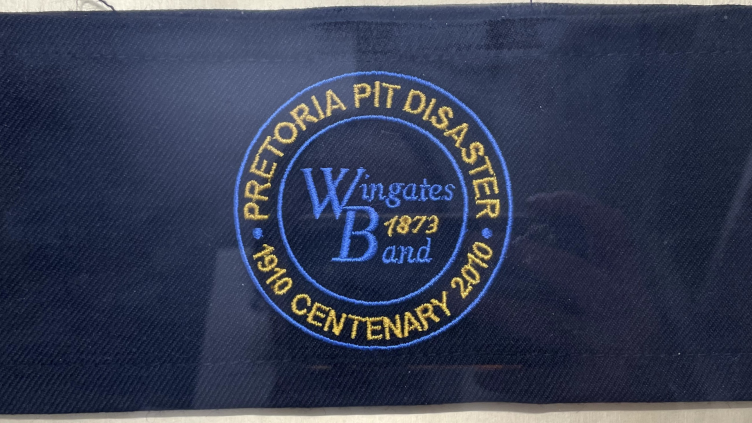
This blog explores the records the Brass Bands Archive hold relating to Wingates band, including a framed Pretoria pit disaster centenary armband by the Wingates Band 2010 [ref: BBA/B/W/4] which is currently on display at The National Coal Mining Museum. The records give you a snapshot of the history of Wingates band and tell stories of resilience and triumph.
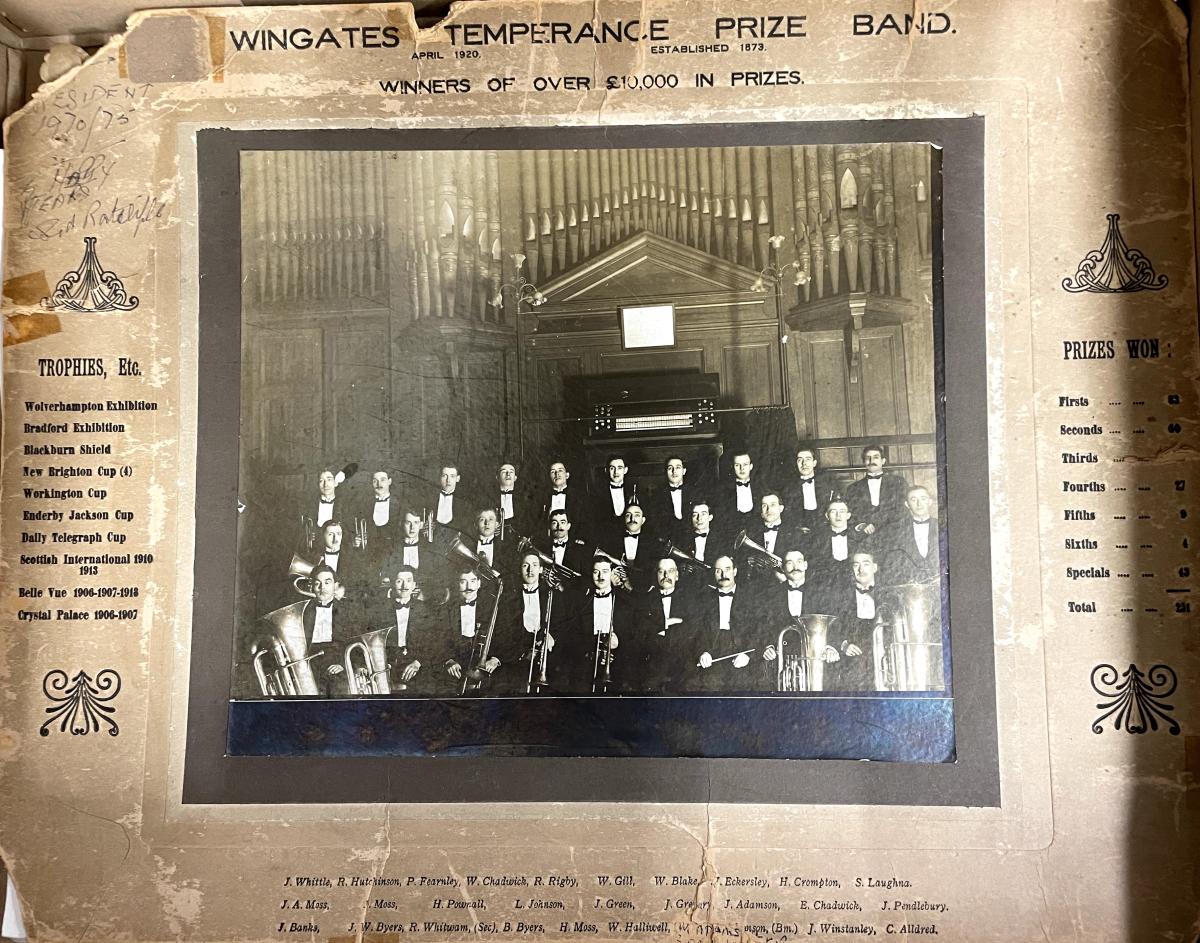
Wingates Temperance Prize Band [Ref:BBA/P/B]
Wingates Band is a Championship Section brass band who are based in Wingates, a town near Westhoughton. They are still going strong as a brass band today, and have a fantastic history beginning in their formation in 1873. They were formed by members of the local Independent Methodist church’s Bible class, which explains why the band was originally known as Wingates Temperance Band.
Wingates Band Makes History : Double Champions
The early 20th century marked a golden era for Wingates Band as they ascended to the pinnacle of brass banding excellence. In 1906, they cemented their place in history by achieving the coveted “Double,” winning both the British Open Brass Band Championships and the British National Championships—a feat that solidified their reputation as one of the best bands of their time.
The British Open Championships of 1906 took place at Belle Vue on Monday, 3rd September. Competing bands performed the challenging test piece Les Huguenots, composed by Giacomo Meyerbeer and arranged by Charles Godfrey. Below is an image of the stunning manuscript used by the bands that year, a testament to the artistry and skill demanded of the competitors.
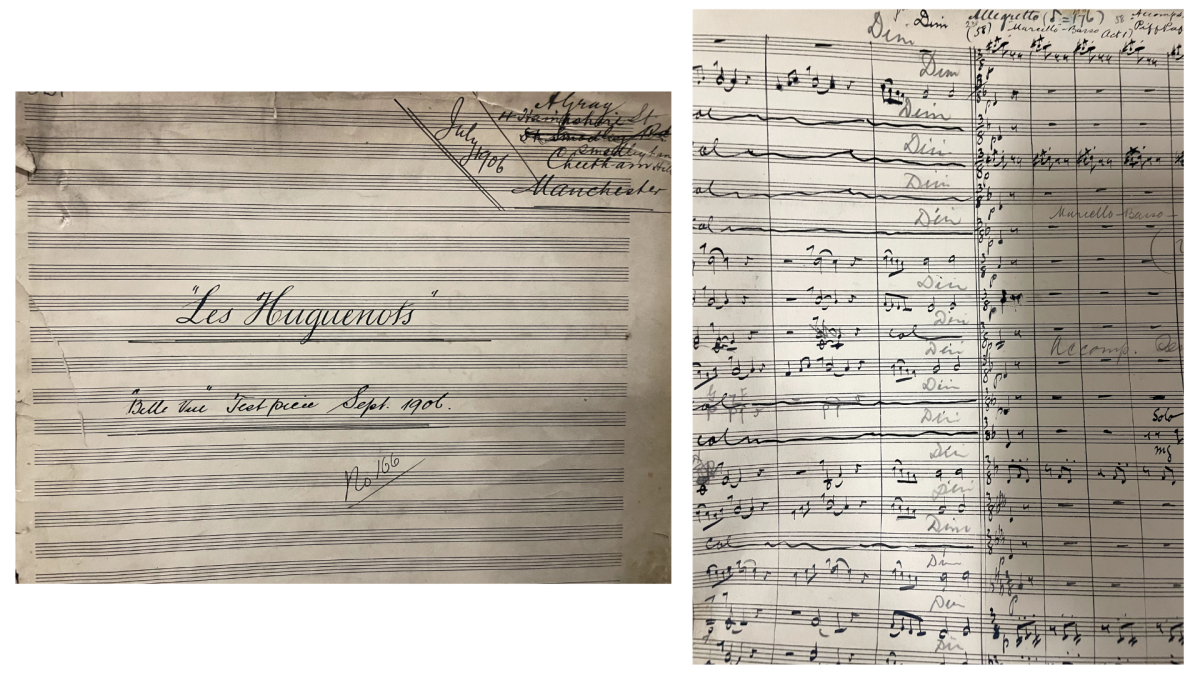
Les Huguenots, composed by Meyerbeer arranged by Charles Godfrey [Ref: BBA/S/MS/M11/1]
Wingates wasn’t finished making history. Just a year later, they achieved the seemingly impossible, repeating their triumph and retaining both titles in 1907. This remarkable accomplishment made them the first band in the British brass banding world to achieve the illustrious “Double Double.” The test piece for the 1907 championships was Robin Hood, composed by Sir George Alexander MacFarren and arranged by Charles Godfrey Junior.
These back-to-back victories not only showcased Wingates Band’s extraordinary talent but also set a new benchmark in the brass banding community. Their legacy of excellence continues to inspire and resonate with brass band enthusiasts today.
They achieved this success with a conductor who is one of the most famous figures in the British band movement, William Rimmer. Wingates brought him on as their first professional conductor in 1891, he transformed Wingates band and led them to winning the ‘double’ and the ‘double double’ . This has only been achieved again in the 1970s by Black Dyke Mills Band.
In the collection you will find manuscript and typescript music composed by William Rimmer, and a selection of the music was owned by Wingates Band. This quick march entitled ‘Salome’ from the Champion Journal [Ref:BBA/SC/3278] is clearly stamped ‘Wingates Band Westhoughton Bolton’.
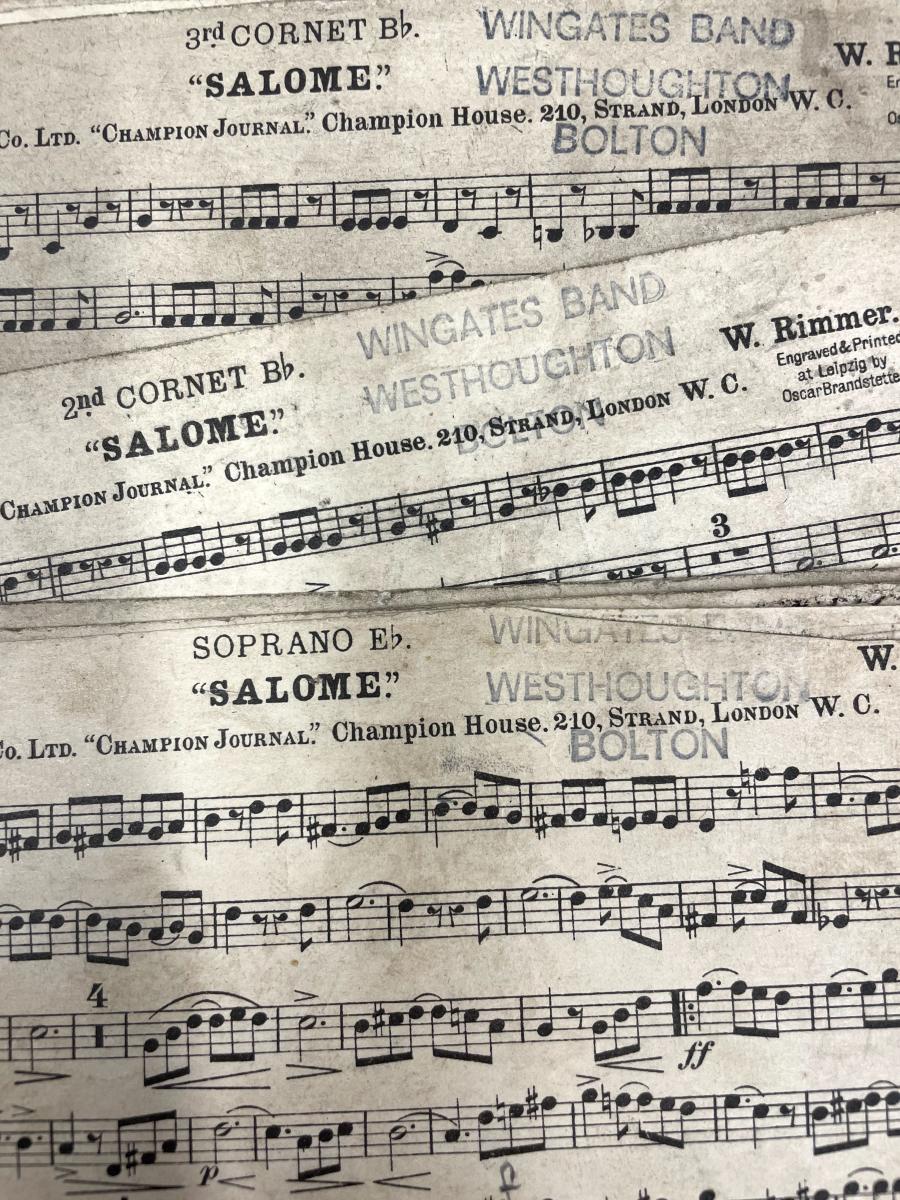
‘Salome’ composed by William Rimmer [Ref:BBA/SC/3278]
Tragedy Strikes: The Pretoria Pit Disaster and Its Impact on Wingates Band
On the 21st of December 1910, the fortunes of Wingates Band were shattered by a devastating event: the Pretoria Pit disaster. A catastrophic explosion at the Hulton Colliery in Westhoughton claimed the lives of 344 miners, including several members of the band. The coal mining industry in Westhoughton was the major employer for men for decades before the last pit closed in 1936. This harrowing incident remains one of the darkest chapters in British mining history, underscoring the perilous nature of life in coal-mining communities.
The night before the tragedy, the band gathered for a rehearsal in their bandroom, a place of music and camaraderie. Many of the players had close ties to the Pretoria Pit, which had been operating at full capacity since 1903. By the next day, the band had lost at least seven cherished members, with potentially five more among the victims.
Among those who perished were:
- William Cowburn, Band Chairman and Bb bass player
- Albert Lonsdale, Band Secretary and soprano cornet player
- Samuel Farrimond, Eb bass player
- Thomas Farrimond, Band Librarian and percussionist
- Fountain Byer, a former Wingates member, then playing with Horwich Old Band
- John Bullough, a founding member of Wingates Band
- Edward Halliwell Green, repiano cornet player
These individuals were more than musicians—they were integral members of the community, their lives entwined with both the band and the colliery. Their loss left an indelible mark on the band and the broader mining village, a poignant reminder of the risks miners faced daily. Wingates played hymns at numerous funerals in the weeks that followed, ‘The Dead March’ from Handel’s ‘Saul’ performed to the sound of muffled drums as the remaining players wore black armbands out of respect.
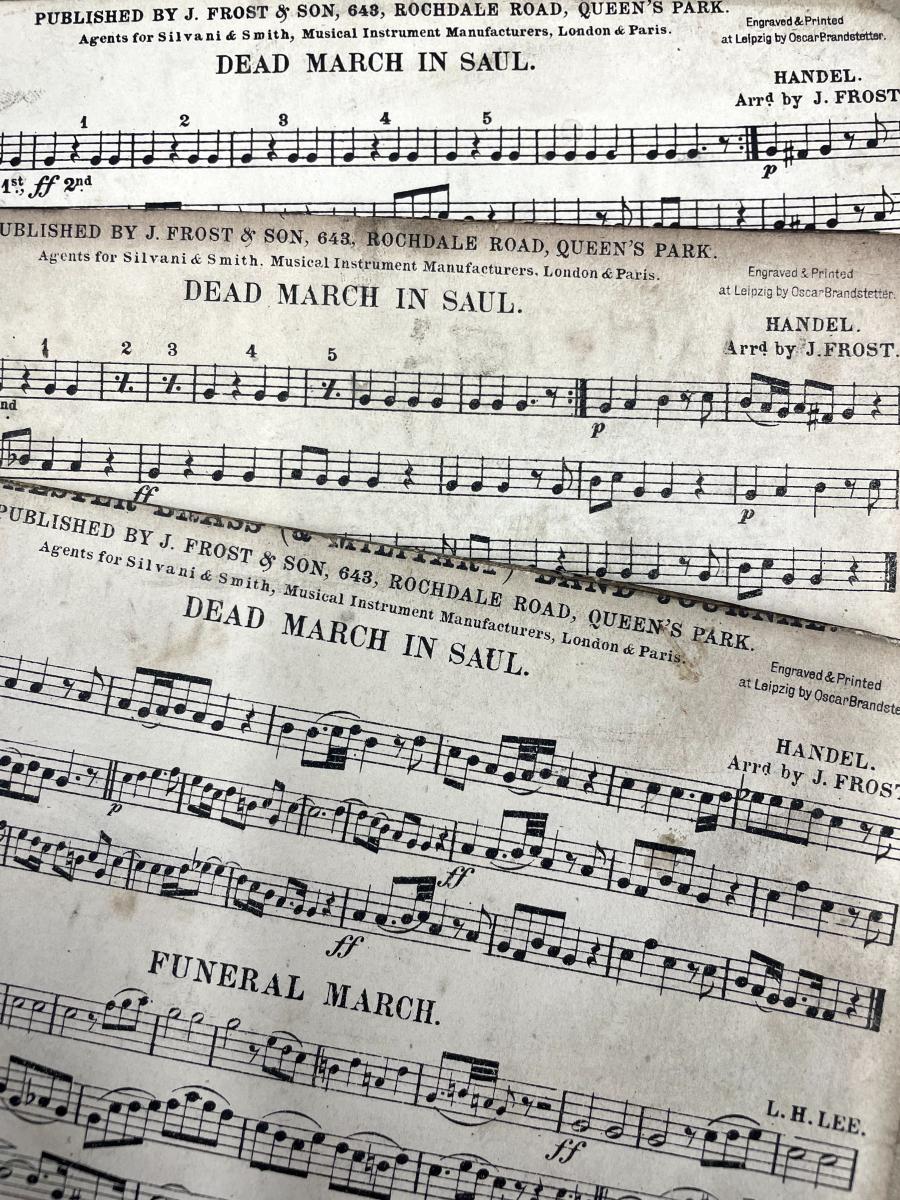
Dead March in Saul composed by by Handel, and arranged by J.Frost [BBA/SC/0998A]
The Pretoria Pit resumed full production as early as the following January, the band however took longer to recover its former position of strength but they did!
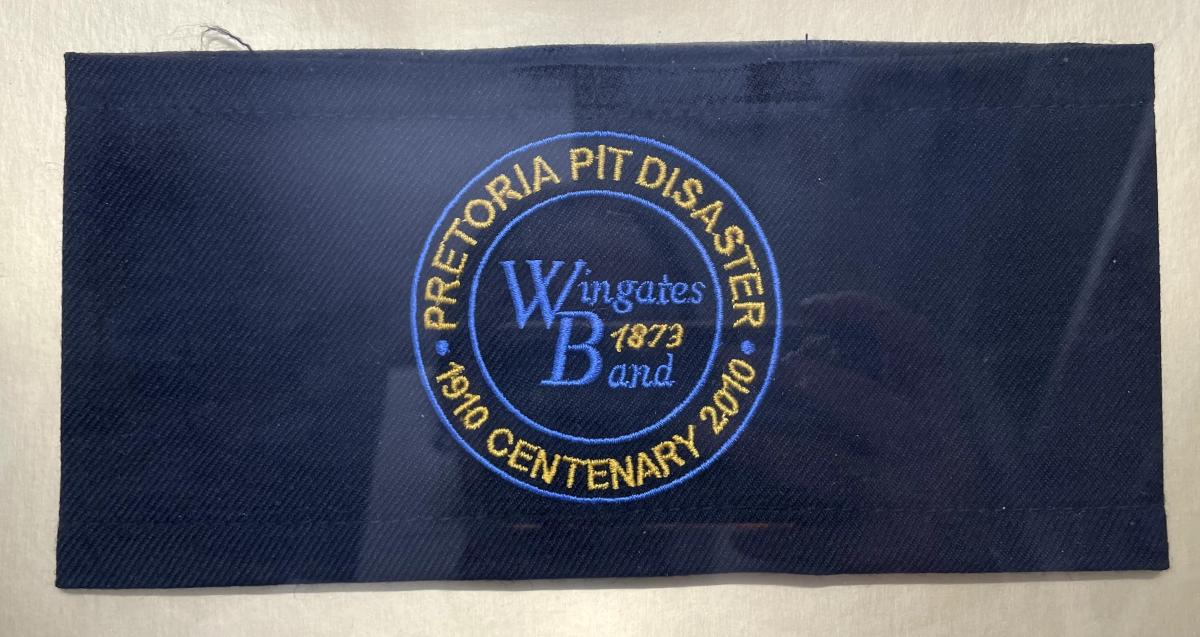
The Pretoria pit disaster centenary armband by the Wingates Band 2010 [ref: BBA/B/W/4] commemorates the Pretoria Pit explosion which occurred on 21st December 1910 in Hulton Colliery.
A Band Resilient: Wingates Temperance Rebuilds and Triumphs Again
Despite the heartbreak of the Pretoria Pit disaster, Wingates Temperance Band showed remarkable resilience, slowly rebuilding and returning to the stage. By 1911, the band was once again performing locally, and their perseverance paid off when they secured 3rd place at the prestigious National Finals at Crystal Palace under the baton of Alexander Owen.
Their determination continued to shine in the years that followed. In 1918, Wingates claimed another victory at Belle Vue, this time under the leadership of John Ambrose Greenwood. Ironically, the mining industry’s designation as a “reserved occupation” during the First World War may have contributed to the band’s ability to maintain its core membership and focus during such turbulent times.
Wingates went on to add more Belle Vue triumphs to their record, winning again in 1921 and 1923. However, the elusive National title remained out of reach until 1931. These victories reflect the band’s enduring spirit and the strength of their community, proving that even in the face of adversity, Wingates Temperance Band could rise to greatness time and time again. They even went on to have success abroad, winning the French Open brass band championship in 2004 and 2006.
In the collection we hold some modern photographs of Wingates band, including their win in the Championship section of the National Championships of Great Britain in 1971. In the photograph below you can see Wingates band holding their trophy [Ref:BBA/P/B/211]
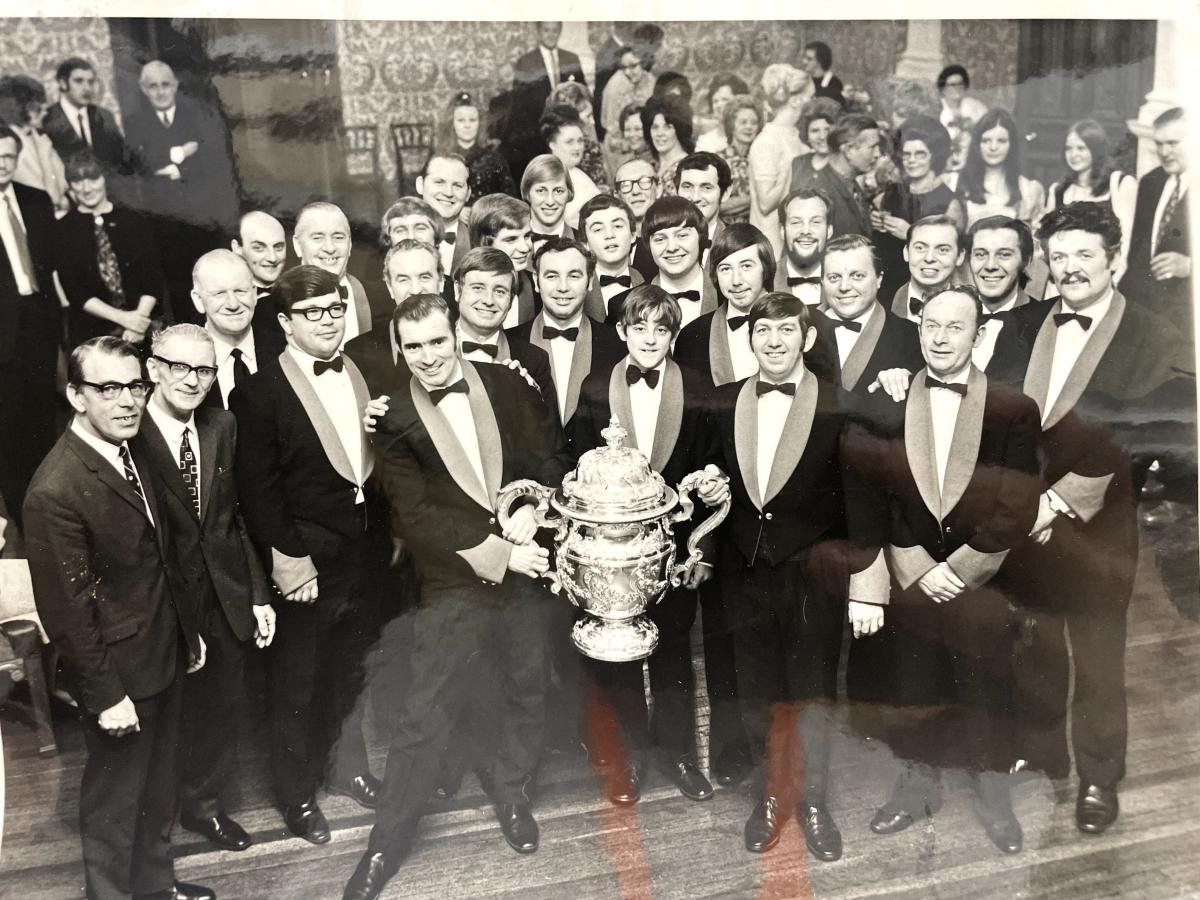
Wingates band’s colourful history is commemorated in a beautiful print which can be found in the collection.
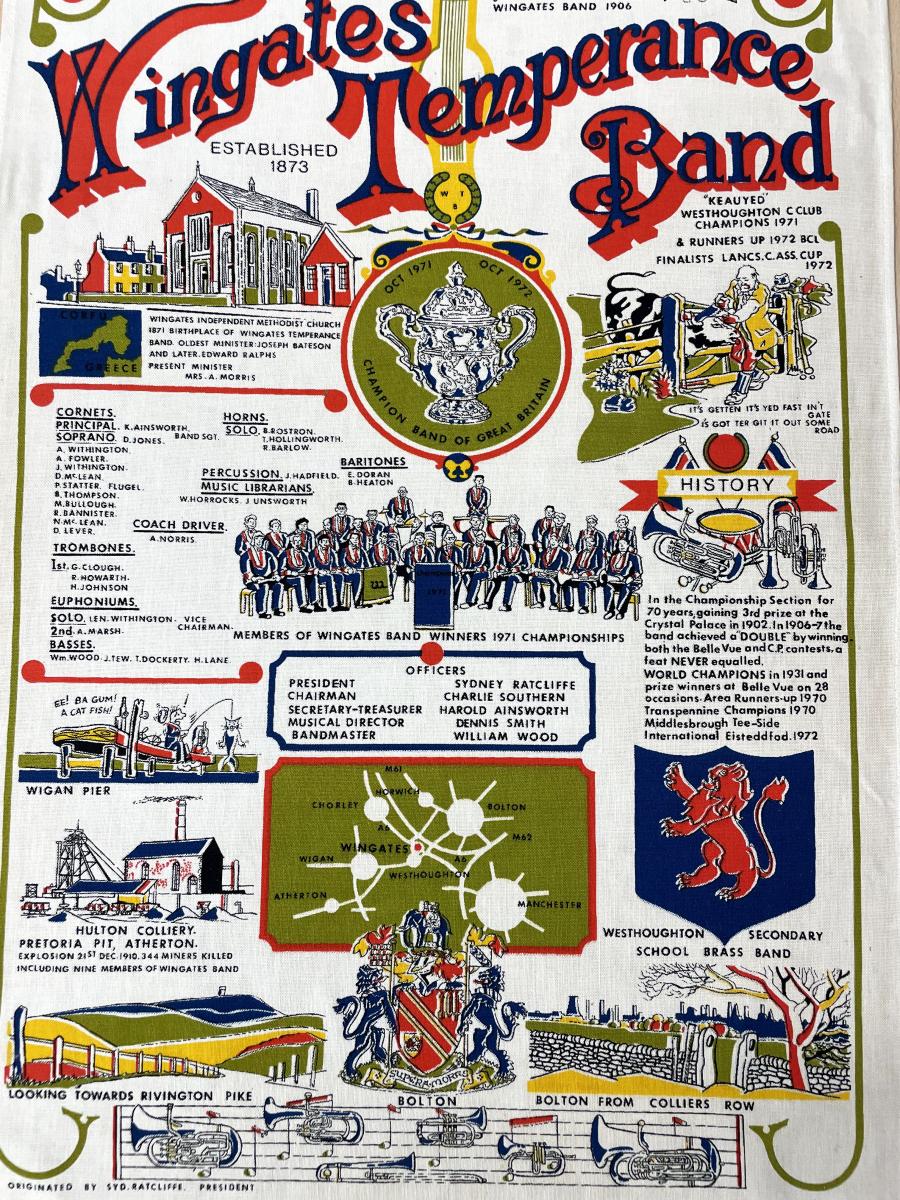
Wingates Temperance Band Centenary commemorative print [BBA/B/W/3]
References and further reading
- Lancashire OnLine Parish Clerk Project
- https://www.4barsrest.com/articles/2010/1182.asp
- About us – Wingates Brass Band
- COAL MINING – Westhoughton Local History Presentations and Photos
- https://www.theboltonnews.co.uk/news/23801990.wingates-band-celebrates-1...